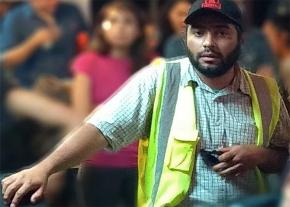We demand to know how Eduardo García died
Eduardo García, a member of the Action and Resistance Collective (CAR), a radical socialist collective based in Mexico City, was murdered several days before Christmas. The authorities have yet to fully investigate his murder, and there are still many questions surrounding the case. Here, we publish a report written Eduardo's comrades in CAR and published in the organization's Periódico Labor.
ON DECEMBER 22, comrade Eduardo García, a member of the Action and Resistance Collective of Mexico (CAR), was assassinated in Mexico City under circumstances that have not yet been clarified by the authorities.
Eduardo began his militancy in one of the high schools of the National Polytechnic Institute of Mexico (IPN) as an activist in student organizations. During his time as a socialist fighter, he participated in supporting the struggles of the teachers' rural schools (Escuelas Normales) and the left wing of the teachers' union in many places of the Mexican territory, while also writing for the newspaper El Comienzo.
He also took part in the #YoSoy132 student movement which sought to resist the impositions of the current Mexican President Enrique Peña Nieto, and in 2012 and 2014, he had a leading role in the student strikes of the IPN. In 2015, he joined the CAR, where he participated in the Ayotzinapa solidarity movement and later on as a union member at the Azcapotzalco campus of the Autonomous Metropolitan University of Mexico (UAM).

Inside the union, Eduardo always advocated for rank-and-file unionism, and he fought to preserve democracy. He also encouraged the participation of students and of all the workers in the union as much as he could.
Several days after his assassination, the authorities have been very slow in the investigation, and there has not been anyone who can answer for the crime, so his comrades have met the need to organize a campaign in order to pressure authorities to speed up the investigation.
The crime happened in broad daylight in the market barrio of Tepito, one of the most dangerous barrios of Mexico City.
Even though there isn't enough evidence to date to claim the murder was politically motivated, it is true that the Mexican government often tries to justify the constant aggression against activists and journalists by disguising them as isolated incidents. In any case, this has taken place in an environment of extreme violence and insecurity, generated by the great inequality which is promoted by the Mexican state itself.
The government of Mexico City has recently turned the city into a Big Brother surveillance state, filled with cameras and spy systems in every corner. In many cases, these surveillance systems have been used to identify and repress activists--it was even used against Eduardo once.
But this time, the Mexican justice authorities claim that the two surveillance cameras that were near the crime scene weren't working at the time, so there is no access to crucial evidence to solve the case.
Eduardo's comrades, as well as the union he was part of and several other organizations and unions, make the call for solidarity to put pressure on Mexican authorities to make an exhaustive investigation to clarify the incident and achieve justice.


